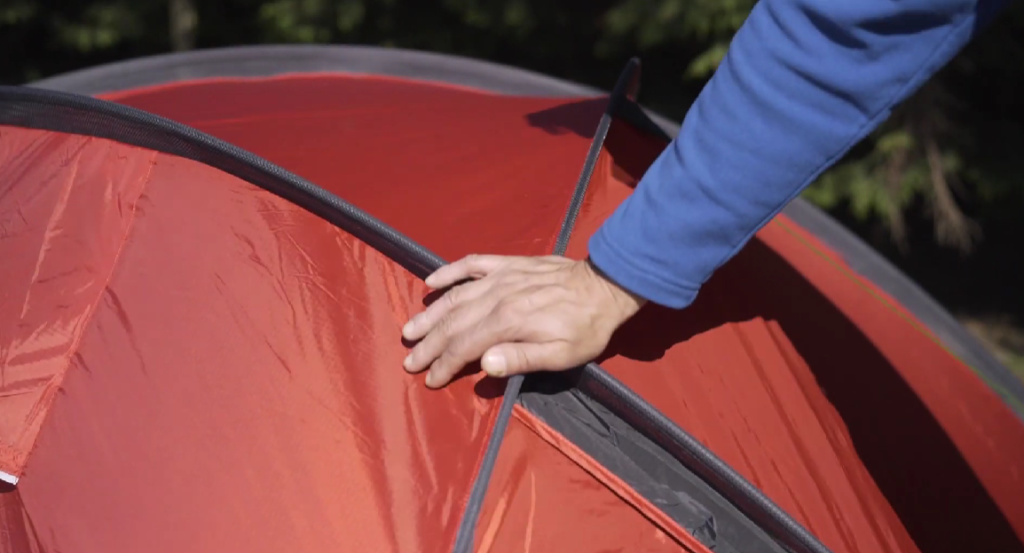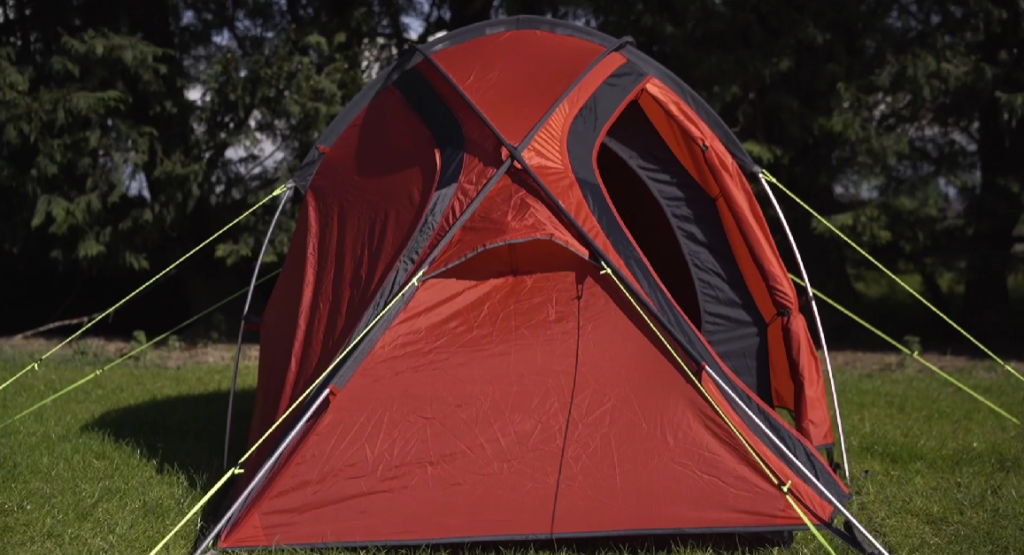When it comes to backpacking, having the right gear can mean the difference between an enjoyable experience and an uncomfortable one.

A backpacking tent is a necessity when it comes to taking on a longer journey in the wilderness, so choosing the right one is important.
Here are some considerations to keep in mind when selecting a backpacking tent:
Types Of Backpacking Tents:
The type of backpacking tent you choose should depend on your needs and preferences. Lightweight backpacking tents are designed for minimal weight and space, while specialized tents offer more features such as additional space and ventilation. There are also four-season tents that are designed for extreme weather conditions, as well as family-sized tents that can accommodate larger groups.
Benefits Of Specialized Backpacking Tents:
Specialized backpacking tents provide a variety of benefits, including increased comfort and protection from the elements. They often come with features such as large vestibules for extra storage space, mesh panels for ventilation, and waterproof fly’s to keep the interior dry.
Additionally, specialized tents can be more durable than lightweight models and can handle more extreme weather conditions.
Materials Used For Backpacking Tents:
Backpacking tents are typically made from lightweight materials such as nylon or polyester that can withstand abrasion and wear. Nylon is the most common material used in tent construction due to its strength and durability.
Polyester is also popular due to its water-resistance properties, but it tends to be less durable than nylon in long-term use. Additionally, some backpacking tents feature frames made from aluminum or fiberglass poles for extra support.
Advantages of Specialized Backpacking Tents:
Specialized backpacking tents provide many advantages compared to standard models. They are often designed with increased height and space so that you can stand up inside the tent or store your gear more easily.
Additionally, they usually come with features such as additional storage pockets or mesh panels for increased ventilation so you can stay cool in hot weather conditions.
Specialized tents also tend to be more durable than lightweight models and perform better in windy or wet conditions. This benefit you will get when you chose a special tent for backpacking.
Features To Look For When Purchasing A Backpacking Tent:
When purchasing a backpacking tent there are several important factors to consider such as size, weight, materials used in construction, ventilation options, waterproofing capabilities, ease of setup/breakdown, durability and other features like pockets or mesh panels.
That may provide additional comfort while camping or hiking in extreme weather conditions. It’s important to read reviews on any potential purchase before making a decision so you know exactly what you’re getting before spending your hard earned money on a new tent.
Size & Weight Considerations For A Backpacking Tent:
When selecting a backpacking tent, size and weight are two of the most important factors. You want something that’s lightweight enough to carry without feeling overwhelmed by its weight, but also spacious enough to accommodate your needs.

This can depend on how many people will be using the tent, as well as what type of climate you’ll be camping in. Ultralight tents can be great for solo travelers looking for something lightweight and compact, while larger tents are better suited for groups or for more extreme weather conditions.
Price Point & Budgeting For A Backpacking Tent:
If budget is an issue, there are plenty of affordable options out there. When You Need A Special Tent For Backpacking. However, it’s important to look at what features come with each model so you know what you’re getting for your money.
Features such as waterproofing, durability and breathability can all have an impact on price, so make sure you take these into account when shopping around.
Setting Up & Taking Down A Backpacking Tent:
Setting up and taking down your tent should be easy and straightforward no matter how long your journey is going to last.

An easy setup system makes it easier to get up and running quickly in any camping situation. Look out for models with collapsible poles and simple color-coded systems that make it easier to know which parts go where.
Care & Maintenance Of A Backpacking Tent:
Proper care and maintenance of your tent will ensure that it lasts longer even through multiple trips. Make sure your tent is clean before packing away dirt and debris can cause fabric damage.
If left too long inside and use products specifically designed for cleaning tents rather than household detergents or solvents. It’s also worth checking seams regularly to ensure they remain waterproofed over time.
Tips For Choosing The Right Backpacking Tent:
Ultimately, choosing the right backpacking tent comes down to understanding your needs both practical and financial as well as finding something that suits your style of camping or hiking.

Take some time to research different models before making a purchase customer reviews can be invaluable here and don’t forget about accessories like groundsheets or mosquito nets which may come in handy during certain types of trips.
Frequently Asked Question & Answers:
What Should I Look Out For When Selecting A Backpacking Tent?
Look at factors such as size & weight considerations, price point & budgeting requirements, setup & tear down ease of use. Care & maintenance requirements, as well as reviews from other customers who have purchased similar tents.
What Type Of Products Should I Use To Clean My Backpacking Tent?
It’s best to use products that are specifically designed for cleaning tents. Rather than household detergents or solvents which may not be suitable for the fabric used in tents.
How Do I Take Care Of My Backpacking Tent?
Careful inspection before each use is key check all parts including poles fabric zippers seams. And stakes for any signs of wear or damage that could affect its performance while out camping outdoors! Additionally regular cleaning can help protect against mold growth or other pest infestations while stored away after use.